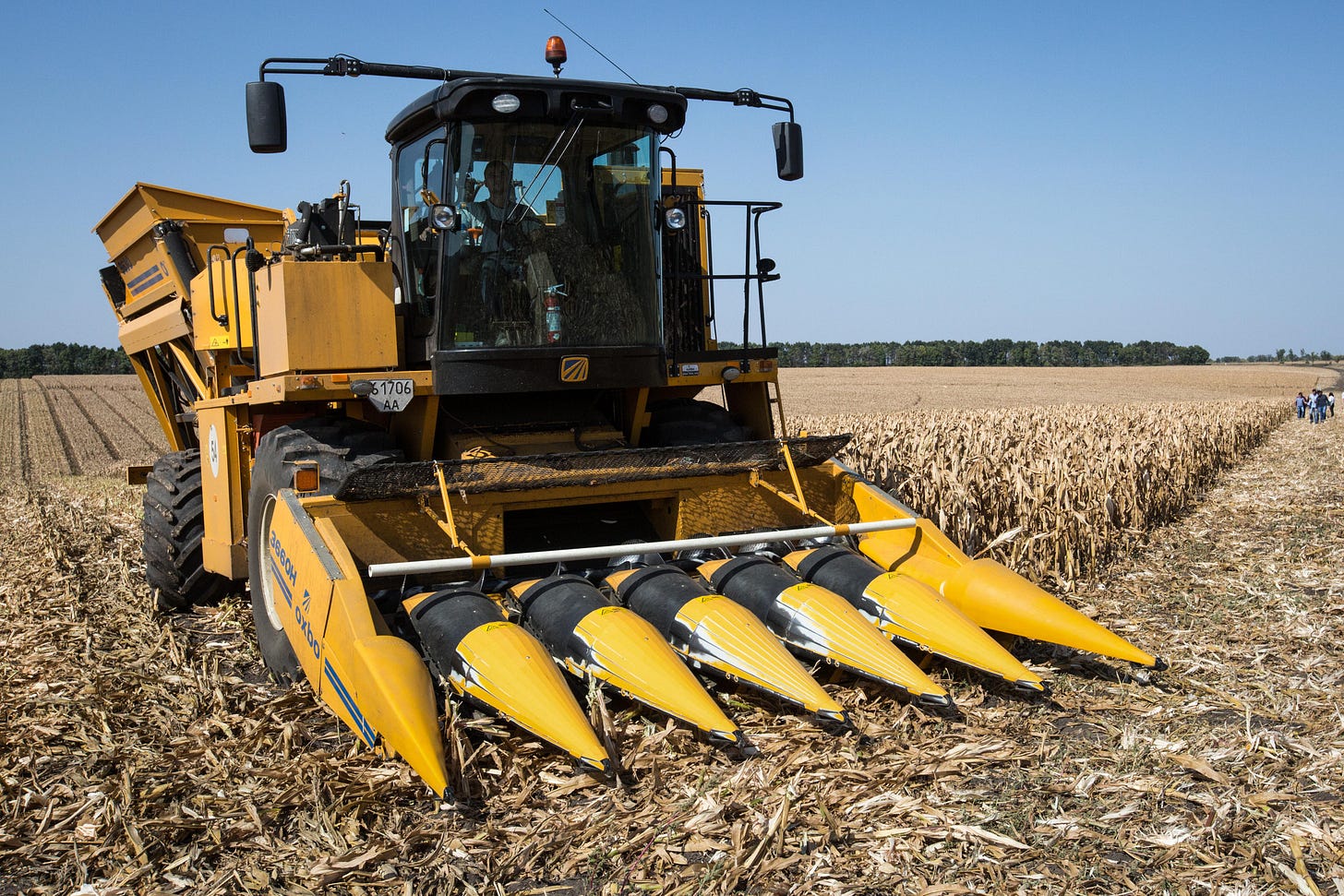The debate on veganism frequently includes criticism regarding the unintentional harm to wildlife during crop harvesting. Critics claim that veganism may not be as benevolent as it appears due to these incidental animal deaths. However, this critique tends to simplify and distort the wider ethical and environmental considerations involved.
Understanding Crop Deaths
Harvesting crops inevitably results in some harm to small animals and insects. Modern agricultural practices, despite advancements in technology, cannot entirely avoid disturbing the habitat of various species. However, the scale of this impact is comparatively minor when placed alongside the massive scale of suffering inflicted by animal agriculture.
In animal agriculture, the cruelty is systemic and inherent to the industry. Animals are bred, confined, and slaughtered under conditions that prioritize efficiency and profit over their well-being. The suffering experienced by these animals—through cramped living conditions, deprivation of natural behaviors, and ultimately, slaughter—is far more severe than the incidental harm caused during crop harvesting.
The Efficiency and Scale of Plant-Based Farming
Plant-based farming is inherently more resource-efficient than animal agriculture. Producing plant-based foods requires significantly less water, land, and energy. For instance, it takes approximately 2,000 gallons of water to produce one pound of beef, compared to just 39 gallons for a pound of vegetables. The environmental footprint of animal farming is considerable, with substantial greenhouse gas emissions contributing to climate change.
By contrast, plant-based farming, even with its minimal incidental harm, uses fewer resources and results in lower greenhouse gas emissions. The overall environmental benefits of reducing reliance on animal products are substantial, which aligns with a broader ethical commitment to sustainability.
Ethical Considerations in Veganism
The ethical foundation of veganism is based on reducing harm and suffering wherever possible. While it’s true that crop harvesting is not without impact, the goal of veganism is to minimize overall suffering and environmental destruction. This philosophy aligns with a broader ethical imperative to reduce harm in all aspects of life.
Addressing crop deaths through improved agricultural practices can further align with these ethical principles. Advances in technology and farming methods are continuously evolving to make crop harvesting less disruptive to wildlife. For example, precision agriculture and habitat-friendly practices aim to reduce the impact on non-target species.
Propaganda and Misconceptions
Critics of veganism often use the issue of crop deaths to undermine the ethical and environmental benefits of a plant-based diet. This argument, while superficially appealing, is a form of propaganda that distracts from the far more significant ethical issues associated with animal agriculture. By focusing on the incidental harm of crop harvesting, critics divert attention from the extensive suffering and environmental degradation inherent in animal farming.
These arguments can also misrepresent the facts, suggesting that crop deaths are equivalent to the harm caused by factory farming. Such comparisons are misleading and ignore the broader context of resource use and animal welfare.
Informed Choices and Sustainable Practices
To address both ethical concerns and environmental impacts, promoting sustainable farming practices is essential. Improving methods of crop harvesting to minimize harm, as well as adopting plant-based diets, can work together to create a more compassionate and sustainable food system.
In conclusion, while crop deaths during harvesting are a real issue, they pale in comparison to the extensive suffering and environmental damage caused by animal agriculture. Veganism, despite its imperfections, represents a significant step toward reducing harm and promoting sustainability. Misusing crop deaths as a critique of veganism ignores the larger ethical and environmental context and detracts from the meaningful progress being made in creating a more humane and sustainable world.
Get my new booklet ‘‘25 Vegan Myths Debunked!’’
This concise guide is invaluable for anyone curious about veganism, offering evidence-based insights and practical guidance to navigate vegan living confidently. All proceeds benefit the promotion of animal rights worldwide!
Visit Our Amazon Store!
Notice: As an Amazon Associate, we earn a commission from qualifying purchases that help promote animal rights worldwide!
General Resources
Books:
Dominion: The Power of Animals in Nature and in Our Imagination by Matthew Scully
Animal Liberation by Peter Singer
Eating Animals by Jonathan Safran Foer
A Billion Hungry Mouths: Feeding the World Without Consuming the Planet by Colin Tudge
Websites and organizations:
Documentaries:
Articles:
"The Case for Animal Rights" by Tom Regan
‘‘Why We Love Dogs, Eat Pigs, and Wear Cows: An Introduction to Carnism’’ by Melanie Joy
‘‘Animal Rights: The Abolitionist Approach’’ by Gary L. Francione
‘‘Fellow Creatures: Our Obligations to the Other Animals’’ by Christine Korsgaard
Seeds of Compassion: Finding Jesus Christ in a Vegan World by Michael Corthell
Receive a single informative article daily at 12:01 AM by email. Explore my homepage with exciting vegan and plant-based news content and delightful and delicious recipes for additional updates. Stay connected to the vegan world and all it has to offer.
Visit The Vegan Project Global our Facebook page for more vegan outreach and education.
The information on this vegan/plant-based blog is for general informational purposes only. It is not intended as legal, medical, or professional advice. Readers should consult with appropriate professionals for specific advice tailored to their situation. The blog owner is not responsible for any reliance on the information herein.





